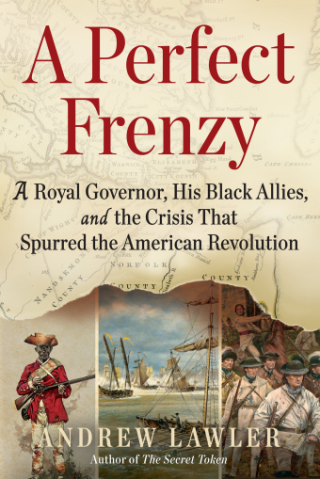As news of the affair spread, hundreds of patriot militia members gathered in Fredericksburg, a tobacco port typically two days’ ride north of the capital, to show “zeal in the grand cause by marching to Williamsburg.” They sent an urgent letter to George Washington, asking for his blessing as well as men and ammunition to launch their assault. Yet the man recognized as the foremost military expert in the colony never responded to repeated messages from the Fredericksburg militia. During what was arguably the most consequential month in American history, Washington remained silent at Mount Vernon.
That reticence had to do with real estate. To avoid an expensive war with Native Americans, Britain had forbidden colonists from claiming tribal lands on the western side of the Appalachian Mountains. Members of Virginia’s gentry chafed at this ban, and Washington had spent years lobbying Dunmore to use his influence to reverse this restriction. In April 1775, he was still pleading his case. An attack on Williamsburg and his patron would be sure to derail his dreams of greater wealth in the west.
When Dunmore learned of the patriot march, he reiterated his threat to free and arm enslaved Virginians. Randolph, president of the Continental Congress, faced the prospect of war breaking out virtually on his doorstep. He sent a letter to Fredericksburg fudging the truth, insisting that the governor had promised “that the powder shall be returned to the magazine, though he has not condescended to fix the day for its return.” He urged the militia to stand down, warning that “violent measures may produce effects which God only knows the consequence of.”
Just before Randolph’s letter arrived, a dispatch about the Massachusetts battles had reached the militia encampment. Emboldened by the news from Lexington and Concord, the assembled officers were eagerly preparing for the offensive. They read Randolph’s letter aloud, and only after a stormy debate did they grudgingly agree to disperse the troops to avert “the horrors of a civil war.”
What was for Randolph a crisis to defuse and for Washington one to avoid was for Patrick Henry an opportunity. The country lawyer saw a chance to engage Virginia’s small farmers and tenants, most of whom remained loyal to the king and largely indifferent to tensions with Britain. Unlike their New England counterparts, these men had not suffered from the presence of British troops, cared little about tariffs and preferred cider to tea. But they did care about their muskets, rifles and gunpowder.
